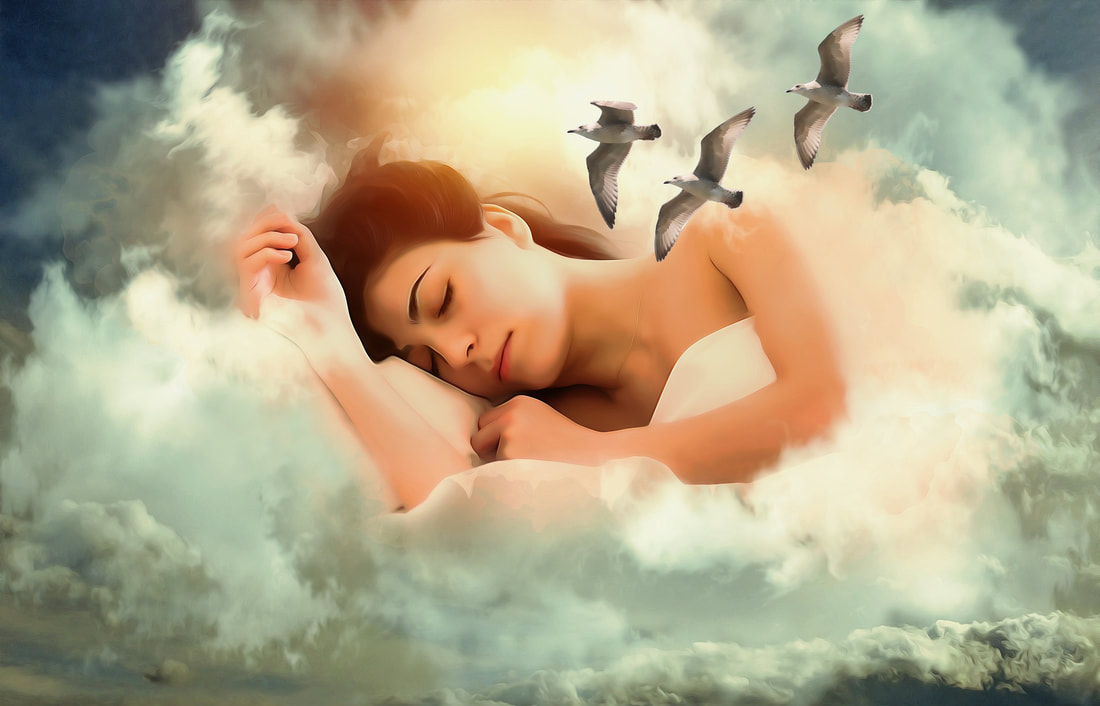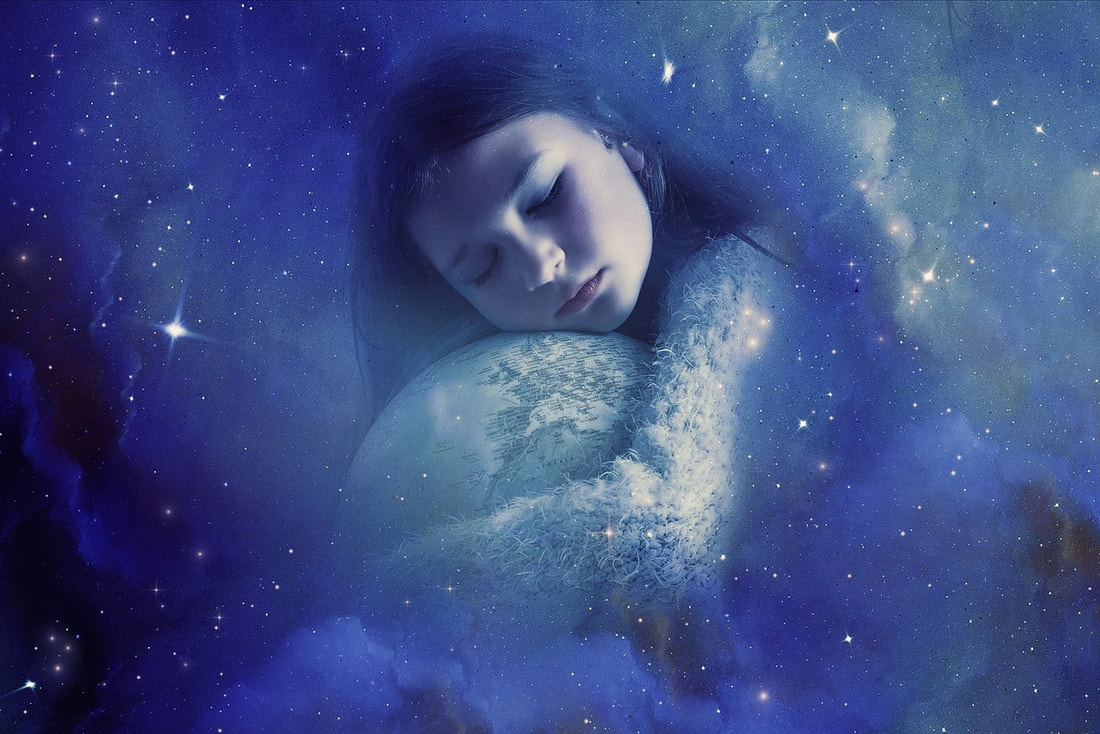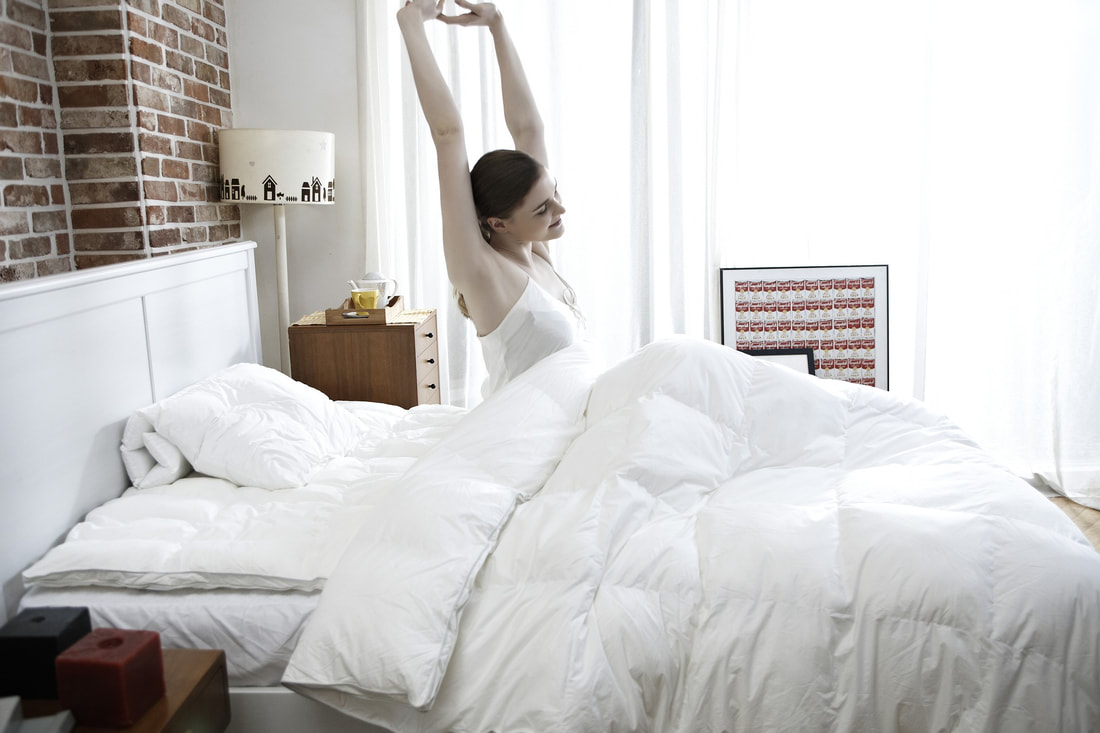
Image by Enrique Meseguer from Pixabay
Every human being needs to sleep, we all know that. But it’s interesting that almost every animal needs sleep too. No matter the species or age, whether it’s a lion, dolphin, insect or octopus, they all need a certain amount of sleep each day. This tells us that sleep is deeply ingrained into the DNA of all living beings that possess any kind of nervous system.
Need for Sleep—Physical Aspect Let us first examine the physical function of sleep at the cellular level. Recent research conducted in 2013 by an American team of neuroscientists, shows that our brains shrink down during sleep, thus leaving some space inside the skull to be filled with the cerebral fluid which then takes out the toxic waste of the brain’s work. Therefore, sleep is essential for our physical and mental health, longevity and proper functioning in this world. Our brains shrink down during sleep, thus leaving some space inside the skull to be filled with the cerebral fluid which then takes out the toxic waste of the brain’s work.  Image by Enrique Meseguer from Pixabay Image by Enrique Meseguer from Pixabay
However, there may be a deeper, spiritual cause of sleep. And if there is, what that could be?
And the Holographic Principle teaches us, as inside—so outside, or as above—so below. In this case, we could suppose that the clue may be found at the lowest, physical level, because all levels are interconnected and symbolically mirror each other. So, at the physical level, there is this process of cleaning up the brain from its toxic waste during sleep. Similarly, on the emotional and mental level, we clearly have a process of deep rejuvenation of our minds. Our toxic thoughts and emotions are being washed out and removed from our subconscious mind during sleep. How does that happen? First of all, we need to understand the process of imprinting the painful experiences into our minds. When we are in the state of conscious presence or Pure consciousness, unpleasant experiences are very rare, and if they do appear, by retaining or re-entering our state of Presence, the stressful event will inevitably fade away. On the other hand, stressful experiences typically occur while we are in a semi-conscious state (i.e., state of being overwhelmed by thoughts or emotions, or being drunk, dizzy, or in other states of mind). Then these experiences stay at that level of consciousness or even get suppressed into lower states of mind, very close to unconsciousness. Normally, we can release them only when we get into exactly the state of mind where they are hidden. Therefore, when we want to recall a suppressed event from the past, which is the source of a problem, we often need to purposefully dive into the unconscious or at least a sort of semi-conscious state. In this sense, hypnosis, autohypnosis, and similar techniques are very effective. As we start falling asleep, we gradually delve into an unconscious state. In this way, while we are still in the semi-conscious state, many impressions, thoughts, and emotions related to everyday experiences are emerging. Usually, these are the mind contents that have some emotional charge. The subtle barrier between the conscious and subconscious mind weakens and it begins leaking various contents of the subconscious mind. The same may occur in the process of waking up, although usually much faster. This process of releasing the painful and suppressed impressions happens in dreams as well, which are almost completely out of control of our conscious ego. If the suppressed impression remains hidden in the layers of our subconscious mind, it must eventually be expressed somehow in our body or in the outside world. This may bring about similar or even worse troubles than those that had caused the suppressed experience. Or it may cause physical or mental illness. That’s why sleep is so important, as well as work on the reintegration of these experiences. Deep Sleep What happens with us when we are in a state of deep sleep? Our consciousness has been gone for a while. It reemerges several times during sleep when we are dreaming (REM phase), although that is a kind of semi-conscious state. But what happens in-between? A similar unconscious state is found in a coma, but without the REM phase and within different biochemical body conditions. In any case, the deep sleep state is needed typically for the vast majority of living creatures. In that period of the day, we are all absolutely dis-identified with our bodies. Our consciousness is indistinguishable from the wholeness of Existence. We are seeing the face of God. But, since that state is completely beyond mind, space, time, matter and energy, there are no memories of it when we wake up. However, in that period our mind is inactive and free of our conscious decisions and pressure for activity. It does exist as an energetic entity, and it’s free to heal and rejuvenate itself, to naturally discharge a lot of unnecessary mind contents, similarly to the above-mentioned process of taking out the toxic waste of the brain’s work. Cycles and Recapitulation Going daily through the cycle from deep sleep to waking state, all sentient beings relive all previous stages of their spiritual evolution, starting from the initial state of oneness with the primordial consciousness (deepest dream), through the state of low-level group consciousness (semi-conscious state before or after sleep), until transition into an individual self-aware consciousness. This cycle of recapitulation of spiritual evolution takes place during the whole human life, in which one passes through the embryonic stage—primordial consciousness; early childhood— the semi-conscious condition of the mind; and adult individuals—the normal waking state. Cycles are inevitable. Recapitulation also exists at the physical level, where the embryo undergoes the stage of development of its biological species—single-celled, then multicellular organism, the stage of fish, amphibians, etc. We may assume that sleeping and dreaming are parts of recapitulation cycles that are vital to all living beings. All of us must repeatedly experience all the main stages of our previous evolution in order to continue with the next stages of development. Sleeping and dreaming are parts of recapitulation cycles that are vital to all living beings.
Therefore, it seems that the lower states of consciousness that we are repeatedly experiencing in these cycles and oscillations (both on a daily and long-term basis), are the foundation of our conscious existence. Moreover, they are the springboard for further spiritual growth.
Tips to Improve Your Sleep Hygiene
You have certainly heard of personal hygiene -- for example bathing, brushing your teeth, washing your hands. It is definitely important for your health. The term “sleep hygiene,” though, might be new to you, yet it is essential for your life. It refers to a series of healthy sleep habits that can improve your ability to fall asleep and stay asleep.
If you are waking up unrested each morning, wake frequently during the night, feel tired during the day or have trouble falling asleep, there is a very good chance that you have bad sleep hygiene.
Sleep plays a key role in your health. One large study has revealed that insufficient sleep (duration less than 7–8 hours per night) causes an increased obesity risk of 89% in children and 55% in adults. Other studies have concluded that poor sleep habits increase the risk of developing heart disease and type 2 diabetes.[1] Insufficient sleep may also drive chronic diseases, including heart disease or stroke, type 2 diabetes, depression, increased inflammation of your body, as well as affect badly your social interactions. So, these are the tips for your better sleep hygiene: 1. Determine how much sleep you need. For most adults, 7 to 8 hours a night is the best amount of sleep, although some people may need as few as 5 hours or as many as 10 hours of sleep each day. 2. Stick to a sleep schedule. Get up at the same time each night, including on weekends and during vacations. Being consistent reinforces your body's sleep-wake cycle, which is very important. 3. Set a bedtime that is early enough for you to get at least 7 – 8 hours of sleep. 4. Create a relaxing pre-bed ritual. It might include the following activities:
5. Avoid lying awake. If you find yourself lying in bed unable to fall asleep after 20 minutes, get up and try to relax somewhere else, like a chair in your office or on the couch. 6. Manage your worries. Try to resolve your worries or concerns before bedtime. Do some journaling. Write down what's on your mind and then set it aside for tomorrow. Do the Reintegration work. Meditate and stay consciously present in the now as much as possible during the day. 7. Stress management might help. Start with the basics, such as getting organized, setting priorities and delegating tasks. Meditation and mindfulness also can ease anxiety. 8. Sleep and alone time with your partner are the only things that should be happening in the bedroom. 9. Make your room dark – the darker, the better; especially try to avoid blue light, which electronic devices like smartphones and computers emit in large amounts. Blue light is the worst in this regard. 10. Create a room that's ideal for sleeping. Make it quiet – the quieter, the better; keep it at a comfortable, cool temperature – neither too hot nor too cold. 11. Get a comfortable bed, mattress, and pillow. 12. Remove or turn off all your electronic devices at least 30 minutes before bedtime. 13. Avoid large or heavy meals before bedtime, or those with high acidity, sugar, or spice. If you are hungry at night, eat a light, healthy snack. 14. Avoid sleep-disrupting medicines before bedtime. 15. Limit your daytime naps to just 10 to 20 minutes. Sometimes naps are essential for that extra productivity boost during a long day, but frequent naps or longer siestas can seriously interfere with nighttime sleep. Longer than that, and you risk entering deep sleep, from which you’ll wake up even groggier than before. 16. Include physical activity in your daily routine. It will help you fall asleep more easily at night. However, your workouts or long walks should take place at least three hours before bedtime. Such physical activities energize you, and the more awake you are, the harder it is to fall asleep. 17. Keep a healthy diet. 18. Avoid consuming caffeine and alcohol late in the day. 19. Take a melatonin supplement. Melatonin is a crucial sleep hormone that tells your brain when it's time to go to bed. Only 2 mg of melatonin before bed may greatly improve sleep quality and energy the next day and help you fall asleep faster. Melatonin is also useful when traveling and adjusting to a new time zone, as it helps your body's circadian rhythm return to normal. You should also speak with a healthcare provider if you're thinking about using melatonin as a sleep aid. Note that in some countries, you need a prescription for melatonin. 20. Stop drinking fluids within two hours before bedtime. Go to the bathroom one last time before bed, to avoid being woken up by your bladder. 21. Get some sunshine. Our sleep-wake cycle is closely connected to our circadian rhythms. Getting some sun during the day reminds your body of its sleep-wake cycle. The more natural light you receive during the day, the more your body stays in tune with the regular day-night rhythms, and your brain learns to associate the darkness that comes in the evening with falling asleep. That’s why it’s also important to limit your exposure to light from electronics late at night. Good sleep routines will increase your concentration and productivity, enhance your athletic performance, and improve your immune system’s function. More importantly, good sleep will improve your lucid dreaming, enhance meditation sittings and mindfulness, and all this will speed up your spiritual growth. [1] https://www.ncbi.nlm.nih.gov/pmc/articles/PMC2398753/
0 Comments
Leave a Reply. |
Please note that most of the articles have a "Read More" break, which is sometimes hardly visible.
It is located at the bottom of visible part of the article, on the right side. To continue reading the article, click on that link. This page may contain affiliate links meaning we earn a commission if you use those links.
We only recommend pages we appreciate and trust. Archives
March 2023
Categories
All

|
For guest posts or placing ads on our website, please use the contact form on the 'About/Contact Us' page.


 RSS Feed
RSS Feed

